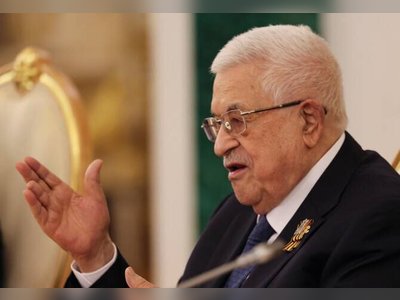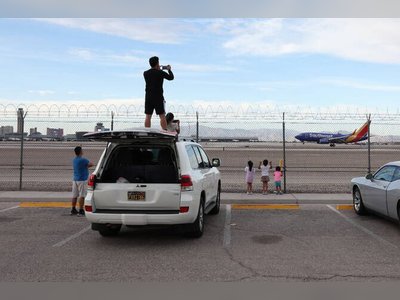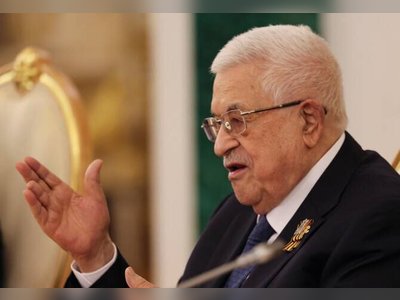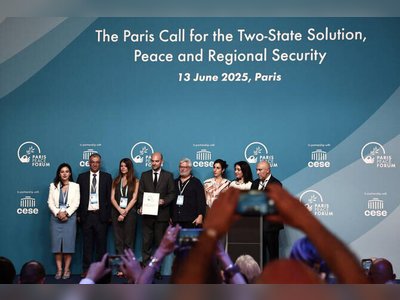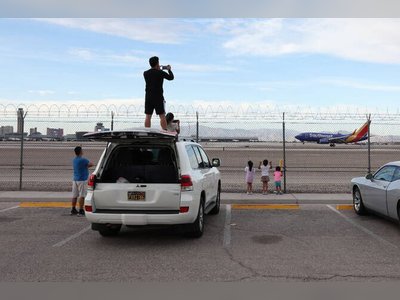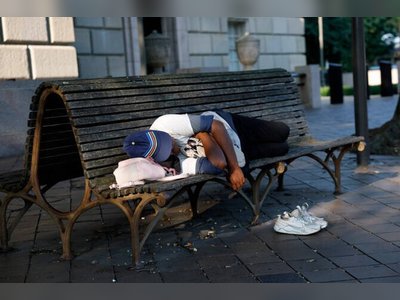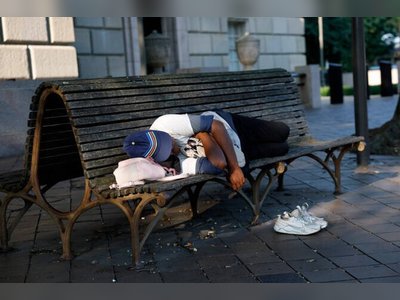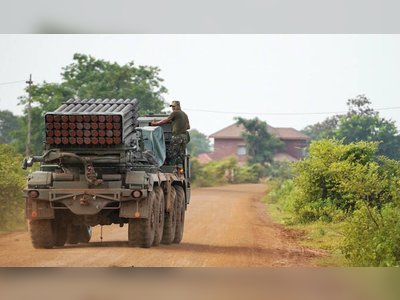
Hong Kong Issues Bounties for 19 Overseas Activists on Subversion Charges
The Hong Kong government is offering bounties for information leading to the arrest of 19 overseas activists accused of national security crimes.
Hong Kong police announced bounties on Friday for information leading to the arrest of 19 overseas activists, accusing them of national security crimes.
This move comes in the wake of Beijing imposing a sweeping national security law in 2020 after significant pro-democracy protests the previous year.
Many opposition figures have fled abroad or been arrested and sentenced to years in jail.
The police claim that these activists were involved with what they term as a 'subversive organization', Hong Kong Parliament, a pro-democracy NGO established in Canada.
On July 1, the Hong Kong Parliament announced on social media its plan for an unofficial poll online to form a 'legislature,' aimed at opposing 'one-party dictatorship and tyranny' and promoting 'Hong Kong people ruling Hong Kong.' Police accused the group of seeking to 'unlawfully overthrow and undermine the fundamental system' of both Chinese and Hong Kong authorities.
The investigation into this organization is ongoing, with police warning that more suspects may be targeted if necessary.
They also urged the accused to return to Hong Kong and surrender rather than make further mistakes.
Bounties ranging from HK$200,000 ($25,500) for 15 activists and HK$1 million for four others were offered.
While these bounties are seen as largely symbolic due to their targets' locations in countries unlikely to extradite political activists to Hong Kong or China, they have been criticized by organizations like Human Rights Watch, which views the move as part of Hong Kong's deepening repression and efforts to silence diaspora communities.
As of July 1, there are now 34 individuals wanted for national security offenses, including charges of secession, subversion, or foreign collusion.
Previous rounds of bounties have faced intense criticism from Western countries, leading to tensions between Hong Kong, China, and these nations over what they perceive as interference.
Hong Kong has also previously revoked the passports of pro-democracy activists on its wanted list under a second homegrown national security law enacted in 2024.
By July 1, authorities had arrested 333 people for alleged national security crimes, with 165 convictions in Hong Kong.
Recently, Hong Kong police arrested four individuals, including a minor, allegedly involved in an effort to overthrow the Chinese Communist Party from Taiwan.
This week, they also detained an 18-year-old for writing what was deemed seditious words on a toilet wall in a commercial building.
This move comes in the wake of Beijing imposing a sweeping national security law in 2020 after significant pro-democracy protests the previous year.
Many opposition figures have fled abroad or been arrested and sentenced to years in jail.
The police claim that these activists were involved with what they term as a 'subversive organization', Hong Kong Parliament, a pro-democracy NGO established in Canada.
On July 1, the Hong Kong Parliament announced on social media its plan for an unofficial poll online to form a 'legislature,' aimed at opposing 'one-party dictatorship and tyranny' and promoting 'Hong Kong people ruling Hong Kong.' Police accused the group of seeking to 'unlawfully overthrow and undermine the fundamental system' of both Chinese and Hong Kong authorities.
The investigation into this organization is ongoing, with police warning that more suspects may be targeted if necessary.
They also urged the accused to return to Hong Kong and surrender rather than make further mistakes.
Bounties ranging from HK$200,000 ($25,500) for 15 activists and HK$1 million for four others were offered.
While these bounties are seen as largely symbolic due to their targets' locations in countries unlikely to extradite political activists to Hong Kong or China, they have been criticized by organizations like Human Rights Watch, which views the move as part of Hong Kong's deepening repression and efforts to silence diaspora communities.
As of July 1, there are now 34 individuals wanted for national security offenses, including charges of secession, subversion, or foreign collusion.
Previous rounds of bounties have faced intense criticism from Western countries, leading to tensions between Hong Kong, China, and these nations over what they perceive as interference.
Hong Kong has also previously revoked the passports of pro-democracy activists on its wanted list under a second homegrown national security law enacted in 2024.
By July 1, authorities had arrested 333 people for alleged national security crimes, with 165 convictions in Hong Kong.
Recently, Hong Kong police arrested four individuals, including a minor, allegedly involved in an effort to overthrow the Chinese Communist Party from Taiwan.
This week, they also detained an 18-year-old for writing what was deemed seditious words on a toilet wall in a commercial building.
